Looking Back to Look Forward
Saturday, April 6, 2024
Written by India Gospel Outreach
Categories: Prayer & Praise
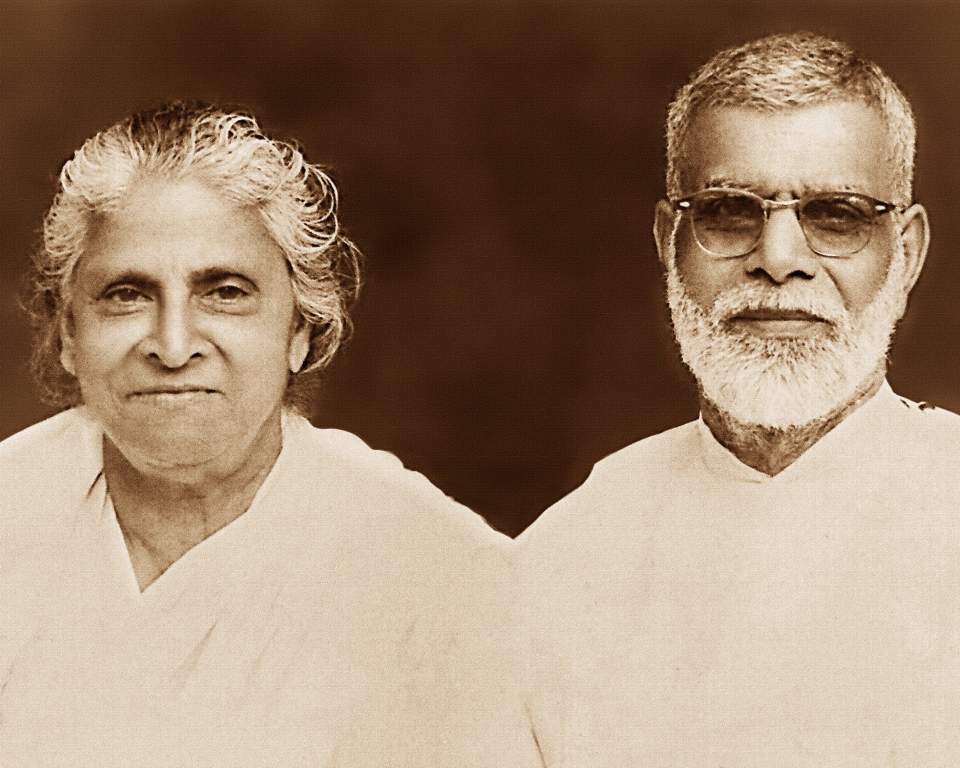
Praise God for His faithfulness during 100 years of ministry through India Gospel Outreach and its forebears.
January 2024 marked the centennial anniversary convention held in Kumbanad, Kerala, marking 100 years since Pastor K.E. Abraham, grandfather of IGO President Valson Abraham, began the Great Commission work in India that later gave birth to India Gospel Outreach.
The theme of the convention was “Eyes on Jesus,” taken from Hebrews 12:2, a fitting theme in the light of the many challenges faced in a land where persecution of Christians is at an all-time high. The Book of Hebrews was written to Jewish believers facing heavy persecution.
Persecution comes, not out of Christian weakness but of strength. Over 100 years, the love and power of Jesus Christ have often taken root in the Indian heart, demonstrated by signs and wonders we read about in the New Testament. Those who have invested in the status quo lash out to control what they perceive is a threat to their power. Only by keeping our eyes on Jesus will we keep a perspective of victory as “the knowledge of God covers the earth as the waters cover the sea” ((Habakkuk 2:14).
This month we pause to look back at IGO’s roots...
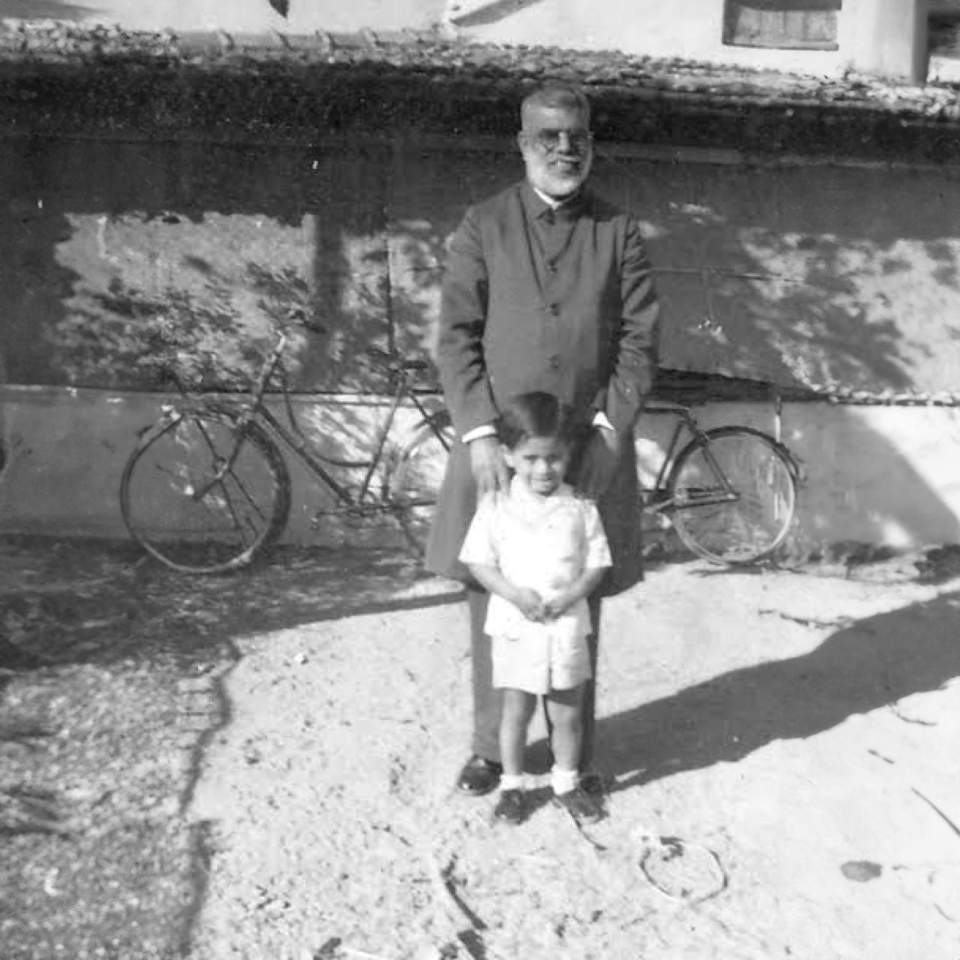
The history of India Gospel Outreach actually begins with Pastor K.E. Abraham, grandfather of IGO President Valson Abraham. Pastor Abraham made an outstanding Indian contribution to strong, Bible-based Christianity between 1923 and 1974. From the beginning of his life, K.E. Abraham developed a Great Commission outlook when he learned to keep his eyes on Jesus.
Born in 1899 and raised in Kerala of poor parents, K.E. Abraham began his life in the Syrian Orthodox Church during the growing turbulence of movements seeking independence from nearly 200 years of Great Britain’s rule. K.E. Abraham’s mother, like Hannah, prayed for a son and dedicated him to the Lord. Early in life, he showed great interest in the things of God. As a boy, he committed his life to Christ. He discovered spiritual gifts in teaching
and evangelism.
He experienced great unrest with his ritualistic, tradition-bound church and sought a deeper life of friendship with God. In 1923, God met him, and he was filled with the Holy Spirit.
During this time, Mahatma Gandhi was becoming well-known, and the desire for Indian independence was reaching fever pitch. Many Indian men and women lost their lives or were imprisoned because of their desire for freedom
from colonialism.
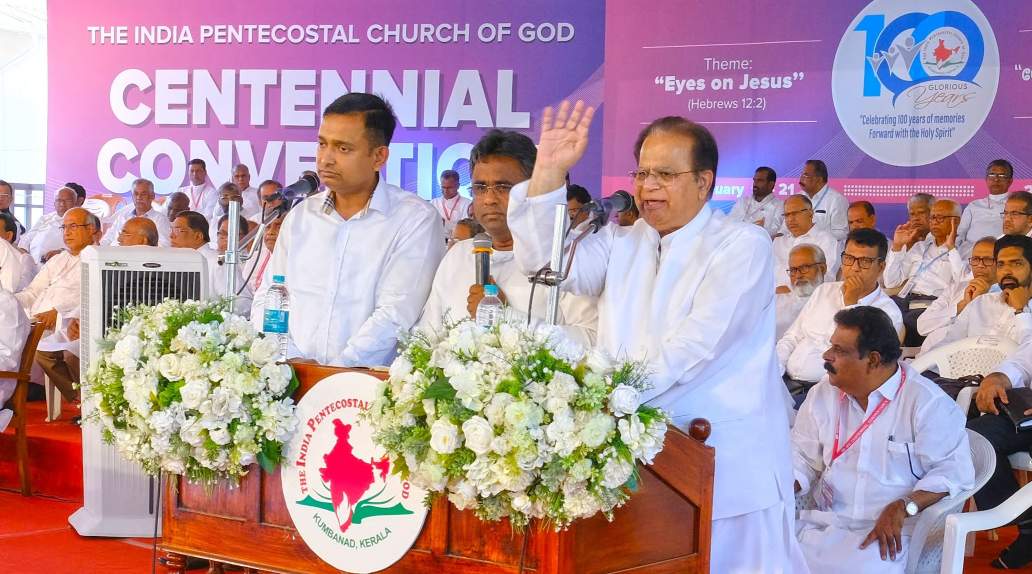
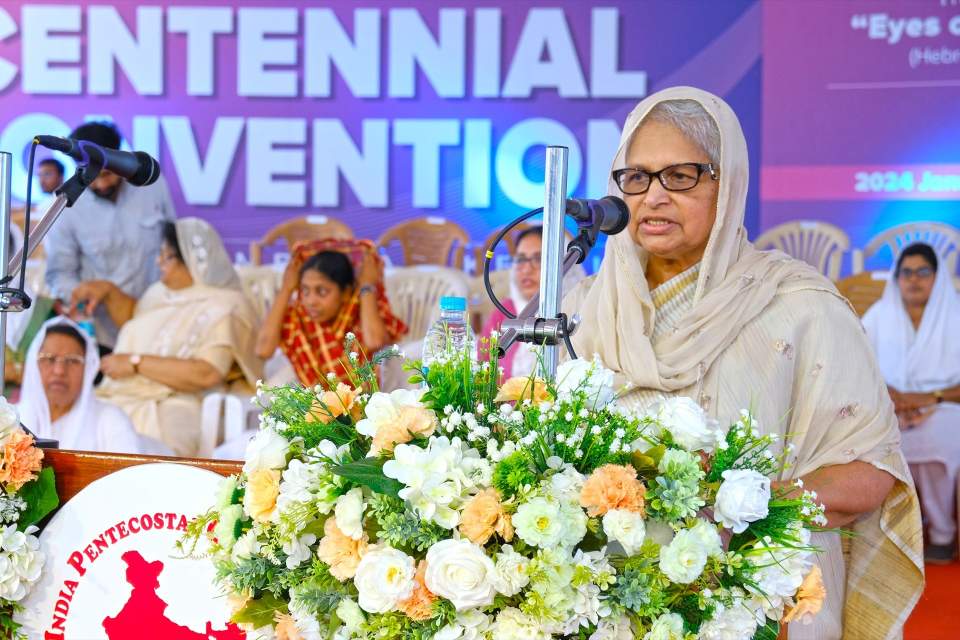
K.E. Abraham quickly developed a broad vision for ministry and mission. Unlike most preachers, he stressed the importance of lay and women’s ministry—views almost unknown in India at the time. He preached the importance of reaching all of India for Christ with Indian missionaries and Indian financial resources. He saw the importance of waging spiritual warfare against the powers of darkness. He believed that Indian Christians must especially evangelize those who never heard the gospel, not become satisfied with biological growth.
With India’s independence movement in full swing, K.E. Abraham knew that in time, independence would come. He valued his close friendships with western missionaries in India and abroad. But when K.E. Abraham prayed about these things, the Lord revealed that a whole-scale adoption of western ways would fail to answer the heart needs of most Indian people. It was not too early to develop a fully independent Indian body of believers to serve independent India and maintain fellowship with friends from abroad.
Early in his ministry, K.E. Abraham learned to separate the essentials of faith from their cultural expressions. K.E. Abraham admired George Muller, whose complete dependence upon God supplied his every need. In his own life, K.E. Abraham learned never to plead/beg for support but to trust in the Lord. He wanted to train new generations of pastors and evangelists not only in theology but to develop a practical and personal relationship with God that kept their eyes on Jesus. He wanted to instill an awareness and practice of the power and reality of fellowship with God.
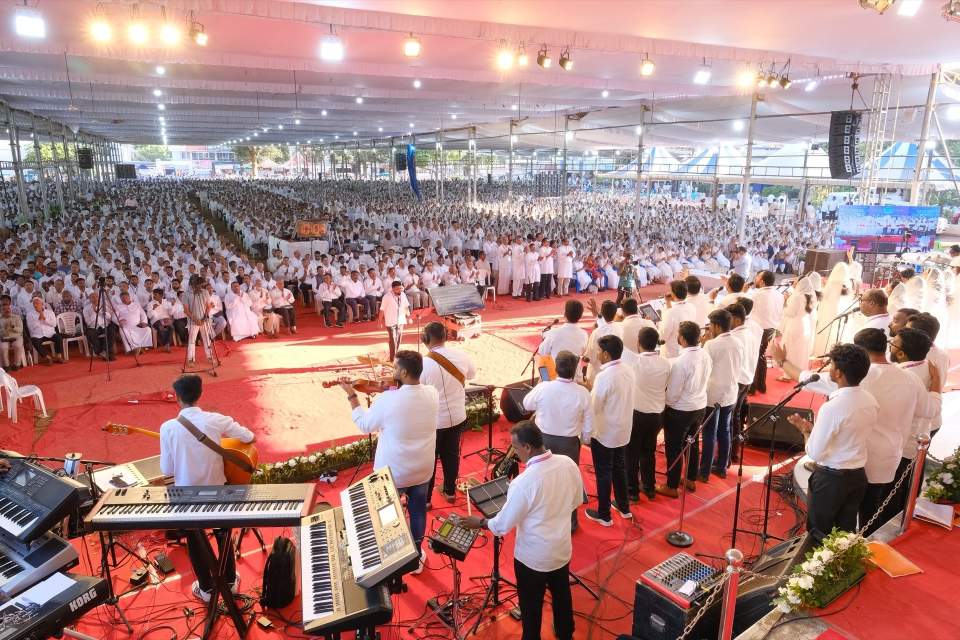
In his time, K.E. Abraham’s vision to see all of India evangelized was rare. While most Indian Christians showed interest in their district or region, K.E. Abraham realized that true obedience to Christ meant reaching all of India’s diverse peoples with the gospel.
K.E. Abraham’s own church considered him something of a maverick. In 1924, he founded the Indian Pentecostal Church (IPC) to serve as the new home for growing numbers of people who shared Abraham’s convictions and who also faced persecution in their own churches.
In the West, the word “Pentecostal” often raises many questions or red flags. However, K.E. Abraham took a broader view of the work of the Holy Spirit. Instead of focusing on certain gifts, he knew the Holy Spirit is essential for success in all areas of life and ministry. This includes worship, evangelism, prayer, changed lives, miracles, spirit encounters, and practical, everyday Christian living in the family, community, workplace and culture.
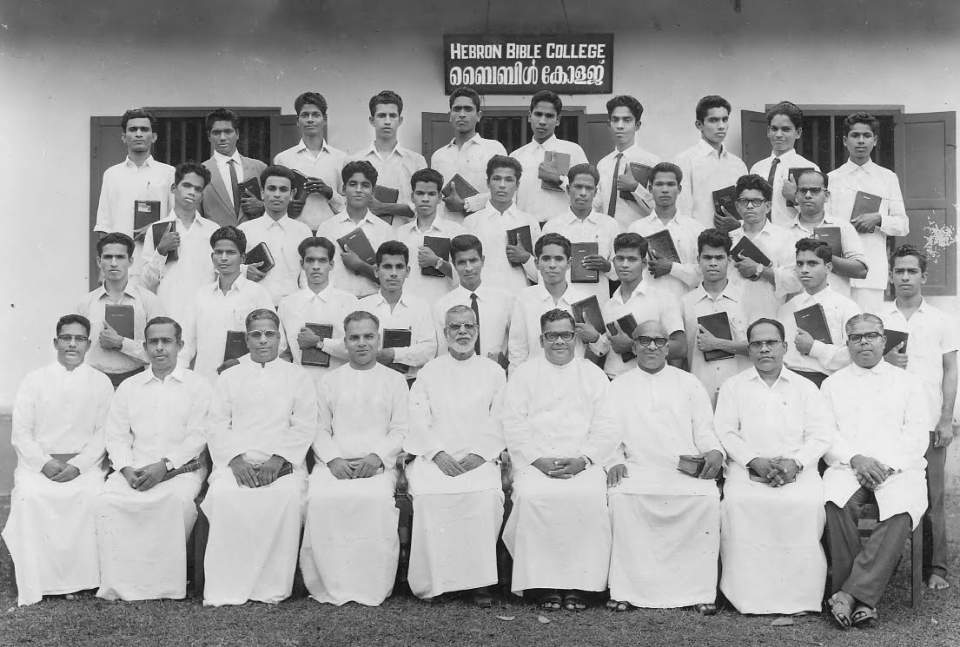
Today, most evangelical Christians in India come from simple backgrounds like that of K.E. Abraham. Nearly 85% of first-time conversions from Hinduism and Islam come through churches that demonstrate convincing signs of the power of the Holy Spirit in overcoming demonic forces that millions of Indian people know
are real.
In 1923, Pastor K.E. Abraham began to disciple cross-cultural evangelists in Kerala, India, to fulfill the Great Commission. He began by gathering a handful of committed young men sitting on his bed in his cottage. This humble beginning resulted in the founding of Hebron Bible College in 1930, which later came to be known as India Bible College and Seminary.
Rev. T. Stephen Abraham, elder son of K. E. Abraham, caught the same vision as his father, becoming a highly respected leader throughout India and beyond. For nearly 70 years, Rev. Abraham actively preached, taught, wrote, mentored, and inspired thousands of men and women to carry the gospel and plant churches in every state of India. Under his leadership, India Bible College and Seminary’s enrollment grew from 30 to more than 700.
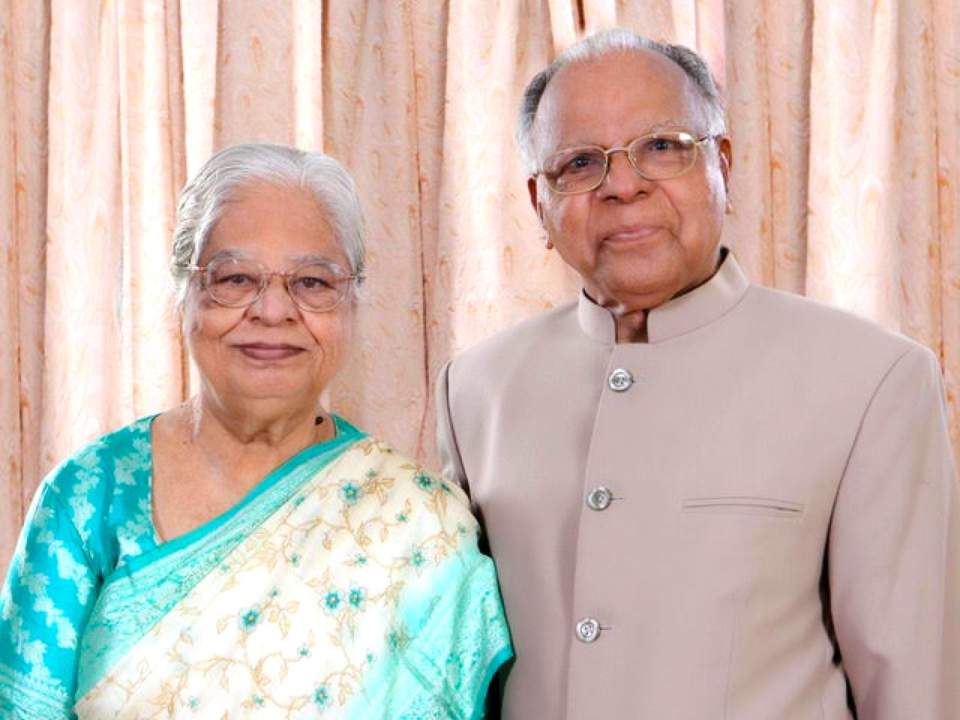
Stephen Abraham served India Bible College and Seminary as a teacher, principal, and president from 1956 to 2015. He was born on September 13, 1925, and was promoted to glory on February 5, 2018.
Rev. T. Stephen Abraham’s son, Rev. Dr. T. Valson Abraham, got the vision from his father and grandfather early in life and developed it under Dr. Donald McGavran, a third-generation missionary to India, who later taught at Fuller Seminary in California. Today, Valson Abraham serves as the Founder/President of India Gospel Outreach (founded in 1984). He also serves as President of India Bible College and Seminary. God has given him a vision to work through IBC and other avenues to plant dynamic churches in each of India’s ethnic groups and zip codes.
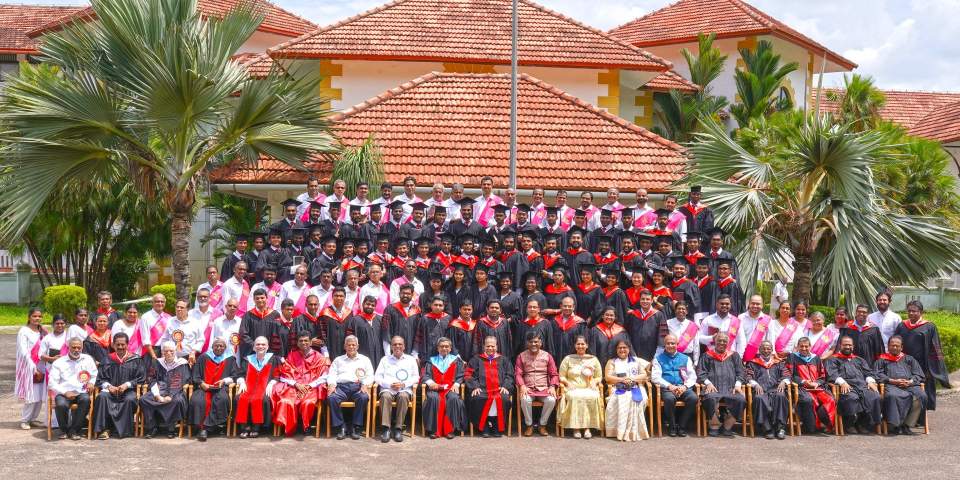
Classes at IBC are taught in English and the state language, Malayalam. However, Malayalam is only one of 1,600+ languages and dialects spoken in India. This vast diversity of culture and language requires different methods of evangelism from one region to another. To overcome these cultural and linguistic barriers, IGO began to develop regional Bible training institutions in each of India’s states.
Regional Bible training institutions allow students to prepare for ministry in their own language, closer to home and in familiar surroundings. This is a great advantage. India’s size and ethnic diversity prevented large numbers of would-be evangelists from coming to India Bible College and Seminary. For this reason, India Gospel Outreach has trusted God to raise up 15 Bible colleges and training centers in 12 states throughout India to train church planters.
A Bible college is a three-year institution offering a Bachelor of Theology degree (India Bible College and Seminary has a number of additional advanced degree programs). A training center is a two-year institution offering a Diploma in Theology degree.
Regional Bible training centers act as extensions of India Bible College and Seminary. They adhere to the mission-oriented philosophy of India Bible College and Seminary. Faculty members are experienced pastors and evangelists who have studied at India Bible College and Seminary themselves and possess spiritual gifts including teaching and mentoring.
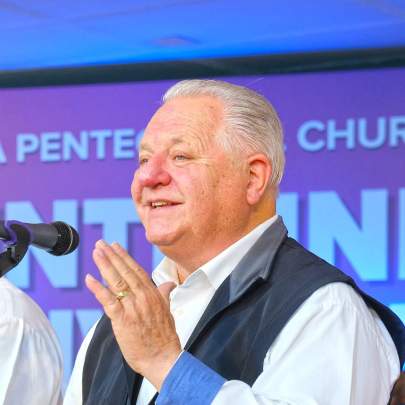
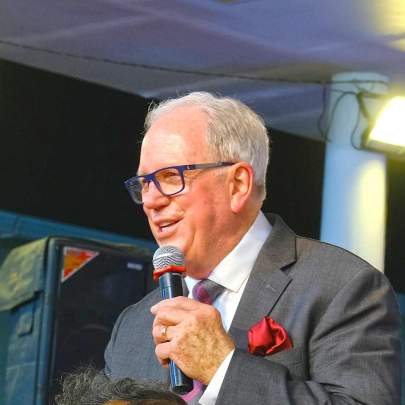
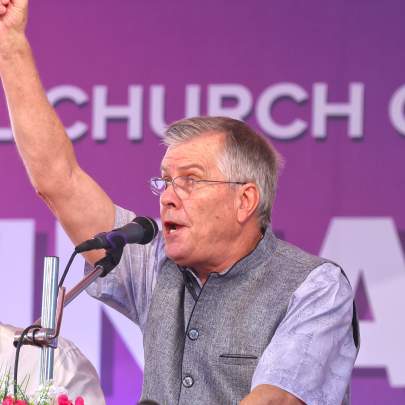
American Pastors Amos Dodge, Larry Titus and Kris Jackson gave major addresses at this year’s centennial convention.
The first regional Bible training center opened in the state of Gujarat in September 1988. Since then, thousands of pastors and evangelists from these Bible colleges and training centers throughout India have graduated and have planted churches in unreached places throughout India. IBC and the regional Bible training centers have also attracted numerous men and women from neighboring nations such as Nepal, Bhutan and Burma.
This is only the beginning: India Gospel Outreach is committed to establishing Bible training centers in all states and territories of India.
The work of evangelists and church planters has resulted in many other kinds of ministries to reach a variety of peoples and backgrounds with the gospel: schools and homes for disadvantaged children, sewing ministries for widowed and poverty-stricken women, counseling services, music and media ministries, disaster relief funds.
Many things have happened in the hundred years since Pastor K.E. Abraham first gathered his first tiny class on his sleeping cot. All that has happened since have at their heart the same spirit and desire that first guided Pastor K.E. Abraham back in 1923: to keep eyes on Jesus and to obey and fulfill His Great Commission.
Pray that over the next 100 years, India Gospel Outreach and the ministry in India will fully realize the vision of Pastor K.E. Abraham and take the gospel to every ethnic group and plant a dynamic and Spirit-filled church in every one of India’s zip codes.






